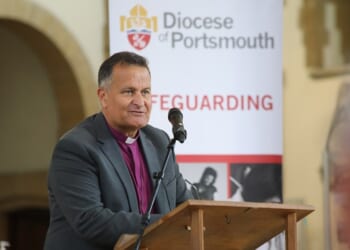Blessed be God
Who has not made me a man,
But created me a woman according to her will;
Who sustains me with sisters;
Who grounds me with friends;
Who blesses me with desire;
And gives me to delight in women,
And to struggle with them,
For the enlarging of my soul
And the recovery of her world
To the glory of her holy name, amen.
Janet Morley (All Desires Known, 1988)
I HAVE a few books to which I return repeatedly. Mostly, they are novels and poetry collections, and, always, the Bible. They have become a deposit of wisdom, love, and memory — my vade mecum as I seek to live a good life. I rarely treat books of prayers and liturgy that way, except perhaps the Book of Common Prayer. Janet Morley’s All Desires Known is a notable exception.
In the 25 or so years since my Charismatic-Evangelical faith began to break down in the face of lived reality, Morley’s bold feminist prayers and reworkings of classics have become sites of promise, possibility, and lively hope. Her writing disturbs as much as comforts me, and that is all to the good.
This prayer is reactive, composed in response to the famous — infamous? — prayer of blessing traditionally offered by Jewish men at the beginning of morning prayers: “Blessed are you, Lord, our God, ruler of the universe who has not created me a woman.” That, I understand, is of Talmudic origin, and belongs to a group of blessings which give thanks for what has been “avoided”: being created a Gentile, a slave, and a woman. Apologists have suggested that the blessing is not meant to disparage women but merely to indicate how God places more glorious obligations on men than women. I shall leave it to the reader to decide if this explanation softens the blessing or digs a deeper hole.
REACTIVE though it might be, Morley’s prayer offers oxygen to me. Some might consider it a “time capsule”: part of that feminist liturgical movement that wrote into the injustices generated by a Church that excluded women from priestly ministry. Certainly, the success of “girl-boss feminism” — that feminism that equates liberation with women breaking through all glass ceilings (including the “purple” one) — might lead to a re-appraisal of Morley’s words. For me, however, they remain urgent. Yes, women exercise significant executive leadership; none the less, our hard-won rights are under fresh and determined negative pressure across the world, and, in the Church, women experience ambient as well as explicit misogyny.
I adore Morley’s subversion of the traditional male understanding of identity as defined by individualism, self-actualisation, and dominion over others. The prayer invites me to be thankful for womanhood by claiming relationship as a fundamental, and worthy of celebration: blessing is found in sisterhood, and friendship. But this is no sentimental, cosy picture of human relationship: Morley’s prayer invites us to claim desire — Eros — as a cherished and honoured horizon of blessed relationship, not only with our fellow humans but with God herself.
THIS prayer reminds me that worship and devotion are never merely private matters, but have social and political horizons. When I pray to be given “delight in women, And to struggle with them, For the enlarging of my soul And the recovery of her world”, I find myself caught up in matters which not only affect my private soul but invite me into a wider work of public restoration and healing. Quietly, unobtrusively, in this feminist reshaping of prayer, one finds oneself entangled in the ecological and the political: the God whose world is wounded by selfish individualism calls us into the work of justice, mercy, and love.
It is a token of the prayer’s abiding power that I cherish it ever more. When I first prayed it, Morley articulated hopes I did not know I had. She offered words into my pregnant, hopeful, and sometimes lonely silence. Now, I pray them in resistance to those who, sadly, wish to leverage fear and law to deprive people like me of the right to claim this prayer as my own.
It is an abiding truth that one of the most powerful ways to silence someone is to deprive them of language, and there are both religious and non-religious people who revel in the prospect of trans women like me being cast out of the sisterhood. Perhaps I shall be — but still I shall pray Morley’s words, and I trust that the Living God in all her generosity will hear me and all who cry out to her.
The Ven. Dr Rachel Mann reviews Quartet for the End of Time: On music, grief and birdsong by Michael Symmons Roberts here














